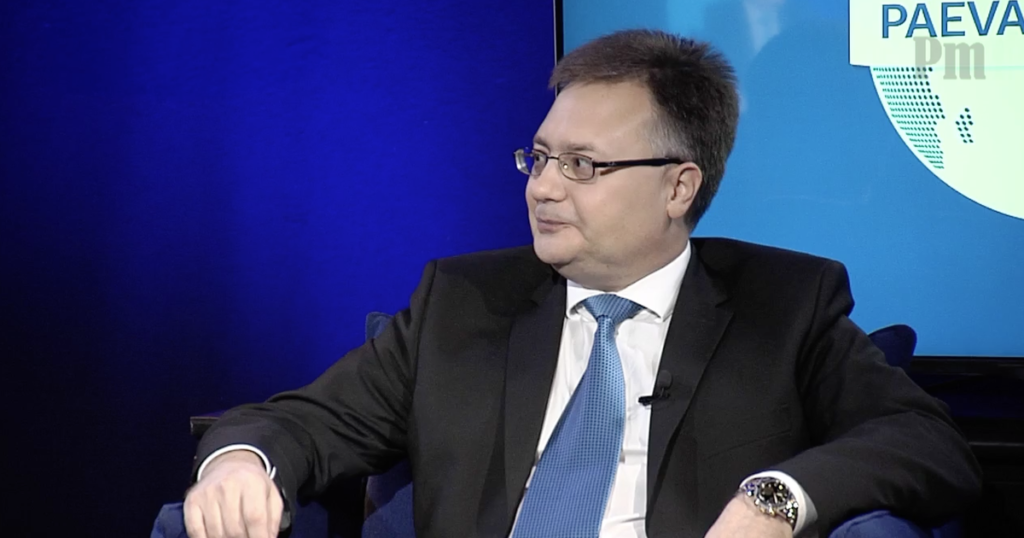Yevhen Tsybulenko, Professor of Law
On December 14, this was not the first Russian kamikaze drone to fall near the Romanian village of Grinda, just a few kilometers from the Ukrainian port of Reni. Reacting to the precedent, Romanians Romanian F-16s belatedly scrambled to the area. It is obvious that such “unintentional” shelling of Romania, viewed in Brussels rather condescendingly, strengthens Putin’s belief in the weakness of the West, writes lawyer and publicist Yevhen Tsybulenko.
Such incidents push Putin towards further confrontation, which will involve, among other things, all sorts of hybrid threats. In essence, NATO hinted to Putin: “We allow you to shell our territory ‘unintentionally’”. There could be no better demonstration of weakness in the eyes of the Russian president.
Putin perceives the simultaneous ignition of conflicts in various regions of the world as an effective way to weaken the Western civilization. This so-called indirect, hybrid influence perfect fits the Kremlin as its troops are currently bogged down in the war with Ukraine.
The Kremlin’s anti-Western rhetoric turned into dictates and threats on the eve of a full-scale invasion of Ukraine, which in a more global sense became Russia’s attack on the entire Western civilization.
Less than two years into the start of war, geopolitical turbulence across the world has increased significantly and new flashpoints of armed confrontation have emerged in regions that are important to the West, and those conflicts have a clear cause-and-effect relationship with Russia’s invasion of Ukraine.
In particular, the “signature” features of the Hamas invasion of Israel largely recreate the crimes committed by the Russians in Ukraine, and the smooth performance by those militants suggests they received high-quality training that could only be provided by Iran, Russia’s long-standing ally. The position of the Kremlin, which has not officially condemned Hamas for its crimes against Israeli civilians, is also indicative in this regard.
Latin America also threatens to become the next hot spot. The demarche by Maduro, who has encroached on part of Guyana – the Essequibo region, risks spilling into a war in the very “underbelly” of the United States.
It is no secret that Venezuela is an ally of the Russian Federation and is best suited for testing the degree of Washington’s readiness to stop conflicts that may erupt in the Western Hemisphere – the holiest issue for American interests, spelled out in the Monroe Doctrine.
And finally, a third source of conflict has already de facto emerged in the Strait of Aden: Yemen’s Houthis launched a series of pirate attacks on commercial vessels, forcing the United States to form a coalition to restore the safety of navigation in the region.
It should be noted that if the Houthis get away with their stunts, China and Russia would benefit from the actual blockade of the Red Sea: Beijing would be able to implement the One Belt, One Road project early and seize full control of international commercial transit.
The conflicts or preconditions for them that have arisen in recent months are cyclical and have largely become a reality thanks to Putin’s actions in Ukraine as he is trying to make the West look weak in the eyes of the whole world.
We’re seeing the Hamas invasion of Israel, the arbitrariness of the Houthis in the Red Sea, Maduro’s territorial ultimatum against the backdrop of demonstrative passages of Chinese military vessels near Taiwan’s territorial waters, and Pyongyang’s increasingly aggressive rhetoric towards Seoul.
If the West does not reconsider its policy towards Russia and does not address the threats coming from the Kremlin, Putin and his allies will foment so many wars and conflicts around the world that the West will ultimately fall under the cumulative burden of challenges. It is no secret that the Kremlin only understands force and makes U-turns only once properly confronted.
In particular, after Turkey downed a Russian Su-24 in November 2015, Russia has not violated Turkish airspace ever since. On the contrary, in March 2023, a Russian Su-27 fighter destroyed an American MQ-9 Reaper drone over the Black Sea, seeing no due response to the act, after which Russia’s jubilation turned into anti-Western hysteria.
According to the concepts of Russian criminal world, the Americans acted as losers, and not only the top thug Putin, but all other dictators know perfectly well how to deal with losers.
These analogies are the best recommendation that one should speak with Russia exclusively from a position of strength. Putin has opened an era of territorial conquests that will inevitably affect Europe and provoke major wars in the Middle East and the Asia-Pacific region if the Russian army does not suffer critical losses at the current stage of the war and the Kremlin’s military machine is not comprehensively degraded.
Consequently, the symbiosis of Russian military and hybrid tools to weaken the West must be neutralized by collectively deterring Russia and weakening its terrorist allies.

